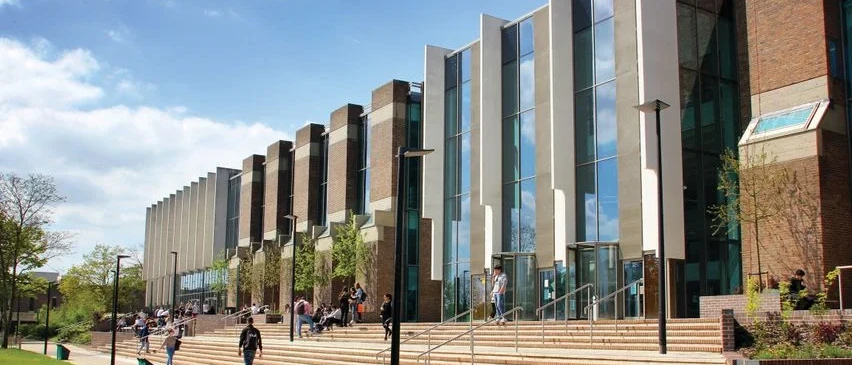

University of Kent
Film
Study detals
: Bachelor's degree : BA (Hons) Film : Full time : 36 MonthRequirements
GCE/GCSE
The minimum requirements are:
- five passes at GCSE grade C (or grade 4) or above, including English Language or Use of English (IGCSE English as a Second Language, grade B or grade 6), and at least two subjects at A level OR
- three passes at GCE A level and a pass at grade C (or grade 4) or above in GCSE English Language or Use of English.
Offers are normally based on achieving three A levels or equivalent at Level 3, although some University subject areas may specify differently. You must have a minimum of two A level equivalents at Level 3 in two subjects (ie two A levels or one vocational double award).
We base offers on a combination of GCSE/AS/VCE A level/A level/other qualifications or predicted grades, your personal statement and reference.
See our GCSE conversion table to understand how A* to C grades are matched with the numerical system.
Other qualifications
We are happy to consider other qualifications on a case-by-case basis, including the following qualifications, providing they demonstrate a satisfactory standard and include a pass in English at the equivalent of GCSE:
- Scottish (SQA) higher/advanced higher qualifications
- Irish Leaving Certificate
- European Baccalaureate Diploma
- Certificate in Education
- university degree
- Advanced International Certificate of Education
- Advanced Placement (AP) – a minimum of two full APs is required
- Overseas certificates (including some other European Union (EU) countries)
- Higher School Certificate of Matriculation of approved overseas and EU authorities
- American High School Diplomas if accompanied by two full AP passes
- School Certificates and Higher School Certificates awarded by a body approved by the University
- matriculation from an approved university, with a pass in English Language at GCSE/O level or an equivalent level in an approved English language test
- Kent’s foundation programmes, provided you meet the subject requirements for the degree course you intend to study
Subjects accepted for the General Entry Requirement
- Kent generally accepts any A level syllabus approved by the AQA, OCR, WJEC and Edexcel and CIE awarding bodies, though we regard some subjects as more suitable than others.
- We do not accept the more vocational subjects if offered as one of only two A level passes.
- We count subjects with a significant overlap as one subject.
- We may accept two mathematical subjects at the same level provided that the course syllabuses were substantially different (for example, a combination of Pure and Applied Mathematics or of Mathematics and Further Mathematics). We will accept papers in Mathematics and Further Mathematics set on the SMP syllabus. A level 'Use of Mathematics' is not accepted by some degree subjects as meeting requirements for a specific grade in A level Mathematics.
- Some academic schools may take into consideration passes in Level 2 functional skills communication and numeracy where you cannot meet the matriculation requirements for English and Maths at GCSE level. However, you are advised to try to retake GCSE English and Mathematics as these will provide a better preparation for studying at university.
English Language Requirements
| Level | CEFR | IELTS Equivalent |
|---|---|---|
| Good |
B2 |
6.0 with a minimum of 5.5 in each component |
| Very Good | B2 | 6.5 with a minimum of 5.5 in each component |
| Excellent | C1 | 7.0 with a minimum of 7.0 in each component |
Speciality
Pathways Available: International Foundation Year
Additional information
Degree Overview
Explore film from its silent beginnings through to CGI blockbusters, taking in avant-garde and international cinemas on your way.
You can tailor your studies, giving you the option to delve into film theory and history, or get hands-on and take advantage of our industry-standard facilities and equipment to create films and express your creativity.
Our academics are practitioners and industry professionals, who can keep you in touch with a rapidly changing industry. Our teaching is designed with employability at its heart.
Our degree is flexible: you study film theory but you can also explore film practice – for example, through developing the skills of a film critic or getting involved in creative film production. In your second and final years, you have a huge range of modules to choose from.